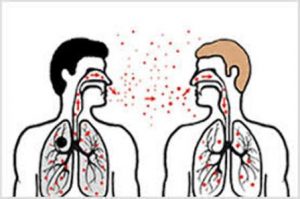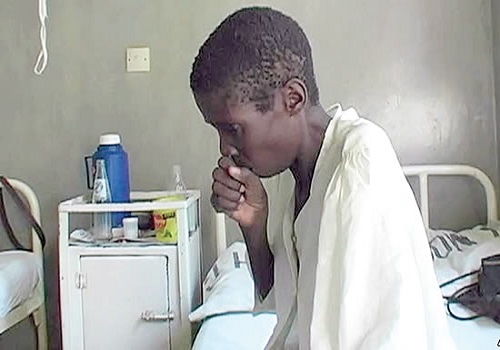 By Dr Awosusi Bayodele
By Dr Awosusi Bayodele
Tuberculosis (TB) is a contagious infection that usually attacks the lungs. It is a chronic granulomatous infection that is caused by bacteria and primarily affect the pulmonary system. It can also spread to other parts of the body like the brain and spine. TB is caused by a type of bacteria called mycobacterium tuberculosis
.In the 20th century,TB was a leading cause of death in the United States. Today, most cases are cured with antibiotic but it takes a long time and one has to take medications for at least 6 to 9 months. More than 100,000 cases are recorded every year in Nigeria.
How does TB affect one’s body?
A TB infection doesn’t mean you’ll get sick. There are two forms of the disease:
Latent TB: Here, the germ is in the body but the immune system stops them from spreading. The individual with latent TB does not have any symptoms and is not contagious but the infection is still alive in his body and can one day become active. If however you are at high risk for re-activation, for instance, one has HIV, primary infection was in the last two years, chest x-ray is abnormal or one is immuno-compromised, a medical practitioner will treat you with antibiotics to lower the risk for developing an active TB.
Active TB: This means the germs multiply and can make one sick. The infection can be spread to another person. Ninety percent of adult cases of active TB are from the reactivation of a latent TB infection .
Symptoms
There are no symptoms for latent TB. One would need to get a skin or blood test to find out if infected but there are usually signs if one has active TB disease. These include:
- Cough that lasts more than three weeks .
- Chest pain
- Coughing up blood
- Feeling tired all the time
- Night sweats
- Chills
- Fever
- Loss of appetite
- Weight loss.
How is TB spread?
Through the air, just like a cold or flu. When someone who’s sick coughs, sneezes, talks ,laughs or sings tiny droplets that contain the germs, you get infected.
TB is contagious, but it’s not easy to catch . You usually have to spend a lot of time around a person who has a high load of bactilli in their lungs. That’s why it’s often spread among co-workers, friends and family members. Tuberculosis germs don’t thrive on surfaces so you can’t get the disease from shaking hands with someone who has it, or by sharing their food or drink.
Risk
You can only get TB if you come into contact with others who have it. Here are some situations that could increase your risk.
- A friend, co-worker, or family member has active TB disease.
- You live or have traveled to an area where TB is common, like Russia, Africa, Eastern Europe, Asia, Latin America and the Caribbean.
- You’re part of a group where TB is more likely to spread, or you work or live with someone who has it. These include homeless people, people living with HIV, IV drug users, you work or live in a hospital or nursing home.
A healthy immune system fights the TB bacteria. But if you have any of the following, you may not be able to fend off the active TB disease:
- HIV or AID
- Diabetes
- Severe kidney disease.
- Head and neck Cancers
- Cancer treatments such as chemotherapy
- Low body weight and malnutrition
- Medications for organ transplant
- Certain drugs to treat rheumatoid arthritis, Crohn’s disease and psoriasis.
- Babies and young children also are at greater risk, because their immune systems aren’t fully formed.
Preventing TB
It’s very important for anyone manifesting signs of TB listed above or those who have been diagnose and undergoing treatment to know that they can easily spread the disease and should there take precautions to help prevent others from getting it. The following tips should be strictly observed until your doctor says you are no longer contagious.
- Always cover your mouth with a tissue when you cough or sneeze. Ensure that you properly disposed of the tissue.
- Wash your hands after coughing or sneezing.
- Take all of your medicines as prescribed, until your doctor tells you to stop..
- Keep all your doctor appointments.
- Stay indoor as much as possible and don’t use public transport.
- Ensure proper ventilation at home.
- Other preventive measures include vaccination (BCG) and good hygiene practice by everyone. Cover your mouth and nose when coughing or sneezing to reduce the spread of TB bacteria

